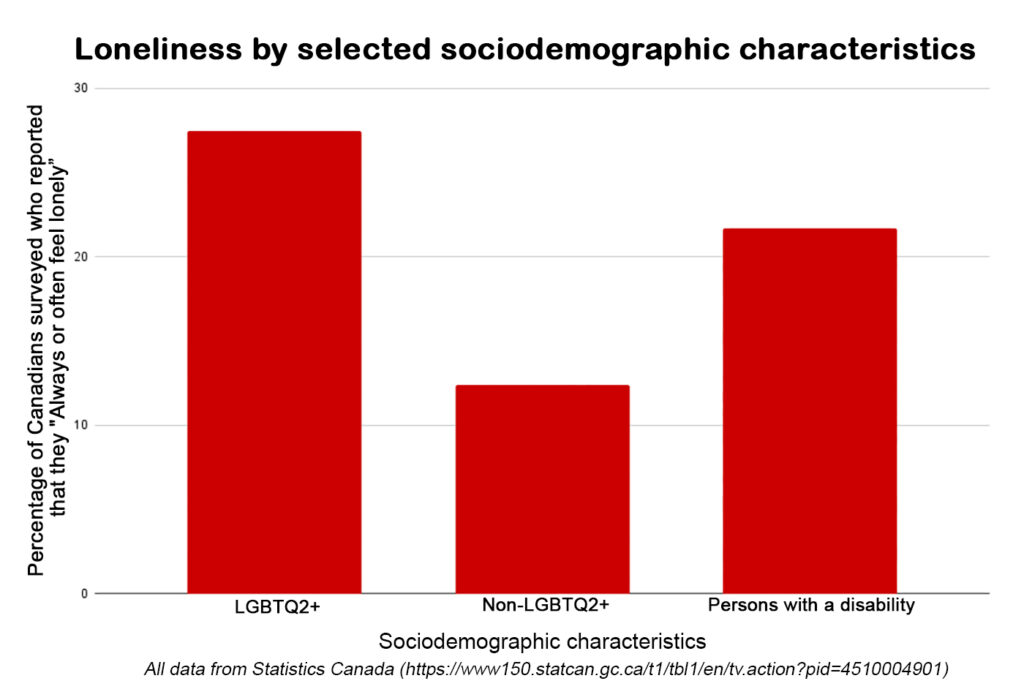
Listen to the whole story here:
As reports of loneliness rise among queer Canadians, local organizers are creating spaces for people to gather, connect and push back against isolation.
A 2025 Statistics Canada study found that LGBTQ2+ Canadians are almost twice as likely to say they “always or often” feel lonely compared to non-LGBTQ2+ respondents. Among all demographic groups, LGBTQ2+ people (28.5 per cent) were the most likely to report always or often feeling lonely in the fourth quarter of 2024, followed by persons with a disability, difficulty or long-term condition (21.7 per cent). By comparison, only 12.4 per cent of non-LGBTQ2+ respondents reported always or often feeling lonely.
“I see a real need for a shift in the way that we’re thinking about opportunities to come together,” said psychotherapist Chris Shillington. “More alcohol free events, events that cater to folks that don’t have financial resources, and that really give folks an opportunity to build connections and relationships.”

Shillington said queer people face higher rates of anxiety and depression, leading to isolation.
“One of the things that we do hear most often from our clients is that they’re feeling lonely,” said Shillington. “That they’re feeling disconnected from community and unsure where to access community.”
Zhané Stimpson, a community builder and content creator, has been active in Toronto’s queer scene since 2022.
“I guess post-lockdown, I also was looking for a community and had a lot of it online, but lost the community I had in person,” said Stimpson. “So I started doing events.”
Stimpson said this year she has run events including a lesbian pie-eating competition, a performative masc lesbian competition, and ‘Queersgiving’.
Stimpson and Shillington alike said accessibility is also a barrier to finding community in the city.
“Accessibility for some people means free,” said Stimpson.
She said Toronto’s event scene can be competitive because the city feels small and offers limited support for organizers. Many people seeking opportunities end up leaving, making it harder to find community builders who stay, says Stimpson.
“When thinking about queer loneliness, you really need those people who are like, let me take initiative,” said Stimpson. “Let me take this into my hands. Otherwise, everybody’s just kind of in different areas.”
Shillington says Gen Z are also consuming far less alcohol than other generations, making sober events during the day a crucial part of community-building. In fact, StatsCan’s most recent data from 2023 shows that 67 per cent of Canadians aged 18 to 22 reported not drinking alcohol in the past week, which is higher than the 51 per cent seen in older age groups.
“I would hope to see a revitalized Church Street, one that has more non-party, non-alcohol centered spaces,” said Stimpson. “I want queer bars that are also cafes during the day and run programming.”
Stimpson is hosting her next event, a lesbian wrestling competition, on Nov. 21.
Emma Amodio is a second-year Masters of Journalism student and a reporter for On The Record, fall 2025.
No AI tools were used in the production of this piece.

